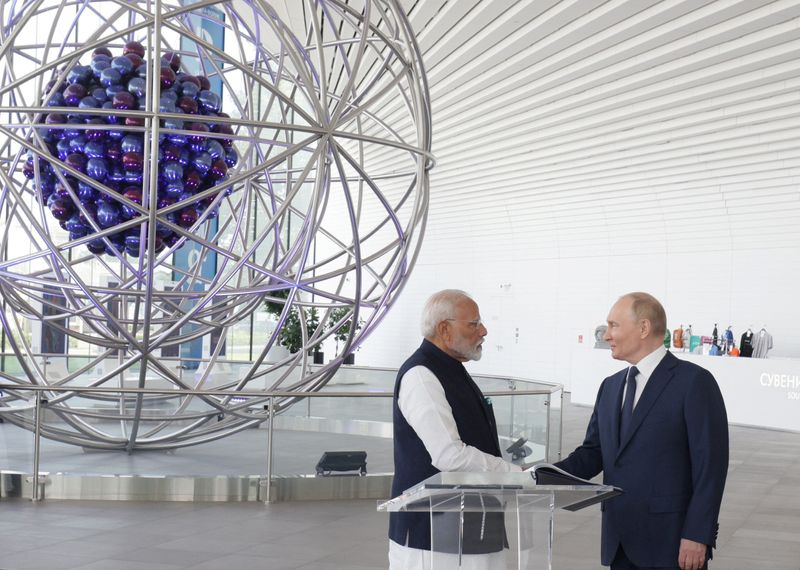
By Nidhi Verma and Krishn Kaushik
NEW DELHI (Reuters) – India wants to strengthen its energy ties with Russia and could seek deals with Rosneft and other leading Russian oil firms as part of a broader push to boost bilateral trade, Foreign Secretary Vinay Mohan Kwatra said on Tuesday.
Indian Prime Minister Narendra Modi and Russian President Vladimir Putin have set a target of increasing bilateral trade to $100 billion by 2030 from about $65 billion at present, Kwatra told a news conference after the two leaders met in Moscow.
“The two leaders when they spoke of cooperation in the (energy) sector, they did focus on how exactly to strengthen that partnership,” Kwatra said.
“(And) in the similar vein, how exactly India in particular through the government-to-government route could also build partnerships with Rosneft and other energy entities,” he added.
India has emerged as the biggest buyer of Russian seaborne oil sold at a discount as Western entities shun purchases due to a raft of sanctions imposed on Russian over its February 2022 invasion of Ukraine.
Russia is the top oil supplier to India, the world’s third biggest oil importer and consumer.
After Putin and Modi’s meeting, the two countries in a joint statement outlined nine key areas of cooperation for the $100-billion trade target. India is keen to boost its exports to Russia to fix its trade balance, tilted in favour of Moscow.
The two nations want the elimination of non-tariff trade barriers and will continue to work for a Free Trade Agreement between Russia-led Eurasian Economic Union and India, the joint statement said.
Energy cooperation included areas such as nuclear energy, oil refining and petrochemicals, partnership in energy infrastructure, technologies and equipment.
Russian entities including Roneft have a majority stake in private refiner Nayara Energy, while Indian companies hold stakes in Russian oil exploration and production projects in the far east.
India’s ONGC Videsh is seeking a formal approval from the Russian authorities to retain its stake of 20% in the Sakhalin 1 oil project in Russia.

Beyond energy, Kwatra said India is a key buyer of Russian fertilisers and want to “consolidate and build” its relations with Moscow for security of crop nutrients.
Modi and Putin also agreed to develop a bilateral settlement system using national currencies, the statement said
This post is originally published on INVESTING.




